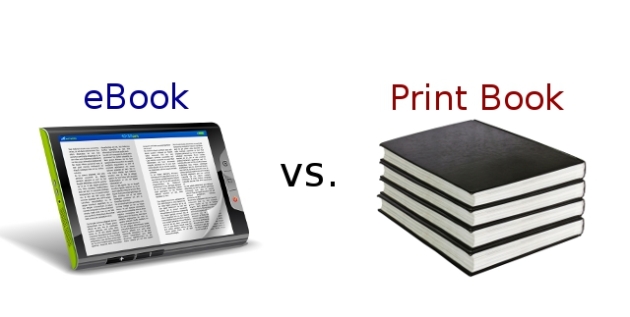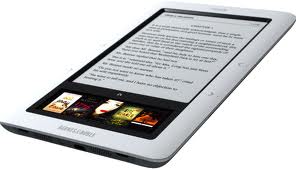 One of the wonderful things about technology is that it causes us to ask questions that we had never previously thought of. The print vs. e-book question had never once been asked prior to the 2000s. But it’s a question that every bibliophile has struggled with at some point in recent years. I know I have. Before I discuss which side of the stick I happen to fall on, let’s delve into the battle a little bit first.
One of the wonderful things about technology is that it causes us to ask questions that we had never previously thought of. The print vs. e-book question had never once been asked prior to the 2000s. But it’s a question that every bibliophile has struggled with at some point in recent years. I know I have. Before I discuss which side of the stick I happen to fall on, let’s delve into the battle a little bit first.

Print
The printing of books hasn’t changed all that much since the advent of the printing press. The process has become easier and cheaper as technology advanced. No matter the price a particular publisher sets for the print edition of a book, the actual cost to print is essentially the same for all publishers. It isn’t as though one publisher has the printing technology of 2005 and another of 1900. Printing is printing and although the price of books is constantly changing, printing is still printing. For instance, I know exactly how much it costs to print my book.
Also, a print book is a physical object. You can hold it and dog ear your pages and highlight and then put it right back on your shelf to read again in the future once you’re finished reading. That means something to many readers.
In just a few short years print books, and thus publishers, have taken a hit from the e-book market. There of course was a time very recently in which all books were printed. Now only about 70% of book sales fall into this category. Think of owning your own business and losing nearly a third of your business before you even have time to react to what’s happening. This is exactly what happened in the last decade to the publishing industry. If you keep up with publishing like I do then you know that for the longest time there were the Big 6 publishers that maintained a stranglehold on the book world. Hachette, Macmillan, Penguin, HarperCollins, Simon and Schuster, and Random House. Well, as you likely already know, in 2013 Penguin and Random House completed a merger that combined two of the world’s largest publishers. This was done out of necessity, for both publishers, due in part to Amazon’s major role in the the book market.
But let’s not get too far ahead of ourselves because I haven’t read anything recently about any more major mergers happening soon.

E-Book
The little guy who has turned the publishing world on its head. The advantages of e-books are numerous and can’t be denied. A digital version of a book is cheaper than a printed version. There’s no paper or ink or printing or anything but a file to be downloaded. A single e-reader or tablet can hold thousands of books without ever needing to give any away to make more room on the shelf. Reading on a device is often more suitable to the eyes than reading straight from paper. (Just think of reading something on your phone in your room at midnight versus reading off of paper) Lastly, everything you can think to do in a printed book like take notes or highlight or save your page can now be done on just about every e-reader or tablet that allows you to read e-books. Let’s face it, a huge percentage of the American population has access to a device on which e-books can be read. I mean, who doesn’t have a PC, Mac, Kindle, iPad, iPhone, Nook, Kobo, Galaxy Note, or Galaxy S? We all do, which means we all have access to the cheaper version of the exact same books available at your local bookstore or online.
Where do I Fall?
After examining printed books versus e-books the conclusion may be clear to some, if not most people. And it is for me. I’m willing to pay whatever the difference is between the digital and printed formats. Why? Because a printed book is a physical object that I can forever admire on my shelf. I can’t admire a file on a smartphone or tablet. I personally have more than 160 printed books and less than 20 on my Kindle. NOTE: I did not buy my Kindle, it was given to me as a gift.
I’m Team Printed Books, what about you? Tell me in the comments!
By the way, this is on my left forearm. I HAVE to be all for printed books.





